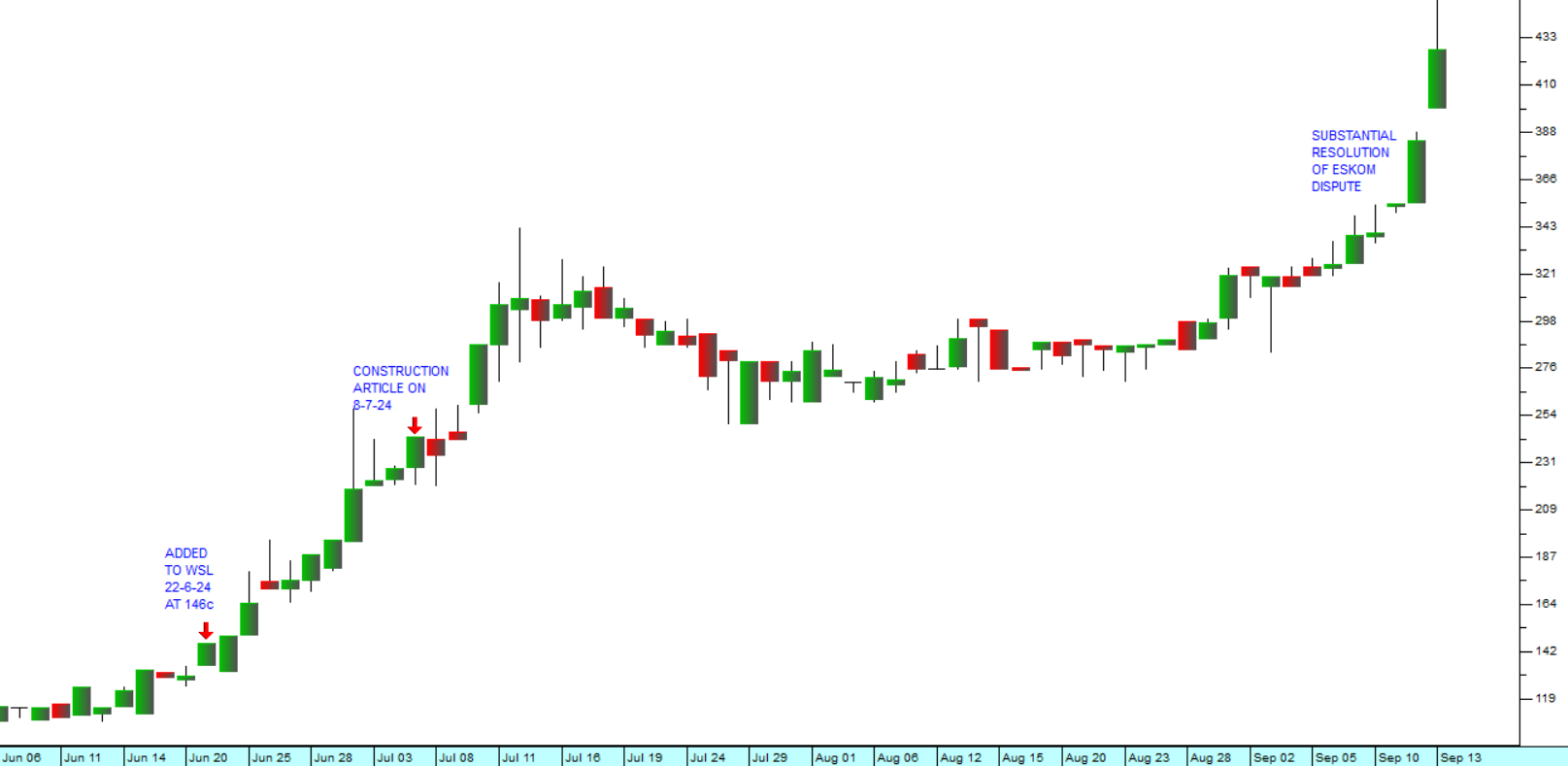Stefanutti Stocks
The construction industry is a high-risk industry from an investment perspective. Its fortunes are dependent on winning profitable contracts, usually from government or quasi-government organisations like state-owned enterprises (SOE). Projects often take years to complete and involve significant capital outlays. This makes their cash-flow management critical to their survival.
Construction companies also have large semi-skilled and unskilled workforces which makes them vulnerable to union action.
On 8th July 2024 we published an article on the construction industry in which we drew attention to the fact that construction companies would probably benefit from the new government of national unity (GNU) and an expected rush of public/private partnerships.
One of the companies that we commented on was Stefanutti Stocks (SSK). This company was founded by Biagino Stefanutti in 1971.
SSK describes itself as a multi-disciplinary construction company that can manage almost any construction project no matter how large or small. Operating in Southern Africa, it undertakes projects in roads and earthworks, marine construction, concrete structures, bulk pipelines, piling, geotechnical services, open pit contract mining, affordable housing, mine residue disposal, renewable energy and other services.
The company was almost destroyed by a contract that it undertook for Eskom at the Kusile power plant. The original contract was supposed to be completed in six years but, according to the Dispute Adjudication Board (DAB) was extensively delayed resulting in massive “prolongation” costs to SSK.
The company almost went into liquidation with its share price falling to as little as 8c in December 2019. Since then, although still under pressure, the company has survived and made a remarkable recovery. This is largely due to the substantial resolution of its dispute with Eskom over the Kusile contract.
In its most recent results for the year to 29th February 2024, the company reported revenue up 17% and a headline loss of 55,73c per share. The company also acknowledged that its current liabilities exceeded its current assets by R1,136bn and that its total liabilities were R52m more than its total assets. Despite this, the directors believed that it was financially sound with cash of R755m at the end of the period.
So, from a balance sheet perspective, this company is highly risky – but it is also a company that has completely restructured itself and is well positioned to benefit from the flood of tenders which are expected to flow from the Government of National Unity. Stefanutti’s BBBEE level 1 status will be a massive benefit in enabling it to win many contracts in the future.
We added Stefanutti Stocks to the Winning Shares List (WSL) on 22nd June 2024 at a price of 146c per share. Since then the share has moved up to close last Friday (13-9-24) at 428c – a gain of 193% in less than 3 months. Consider the chart:

The chart shows the SSK share price from 11th June 2024 to last Friday. Our article on the construction industry was published on 8th July 2024 at which time SSK had already moved up substantially. Since then, uncertainties around the Eskom dispute resolution process through the DAB have mostly been resolved resulting in a further acceleration of the share price.
← Back to Articles